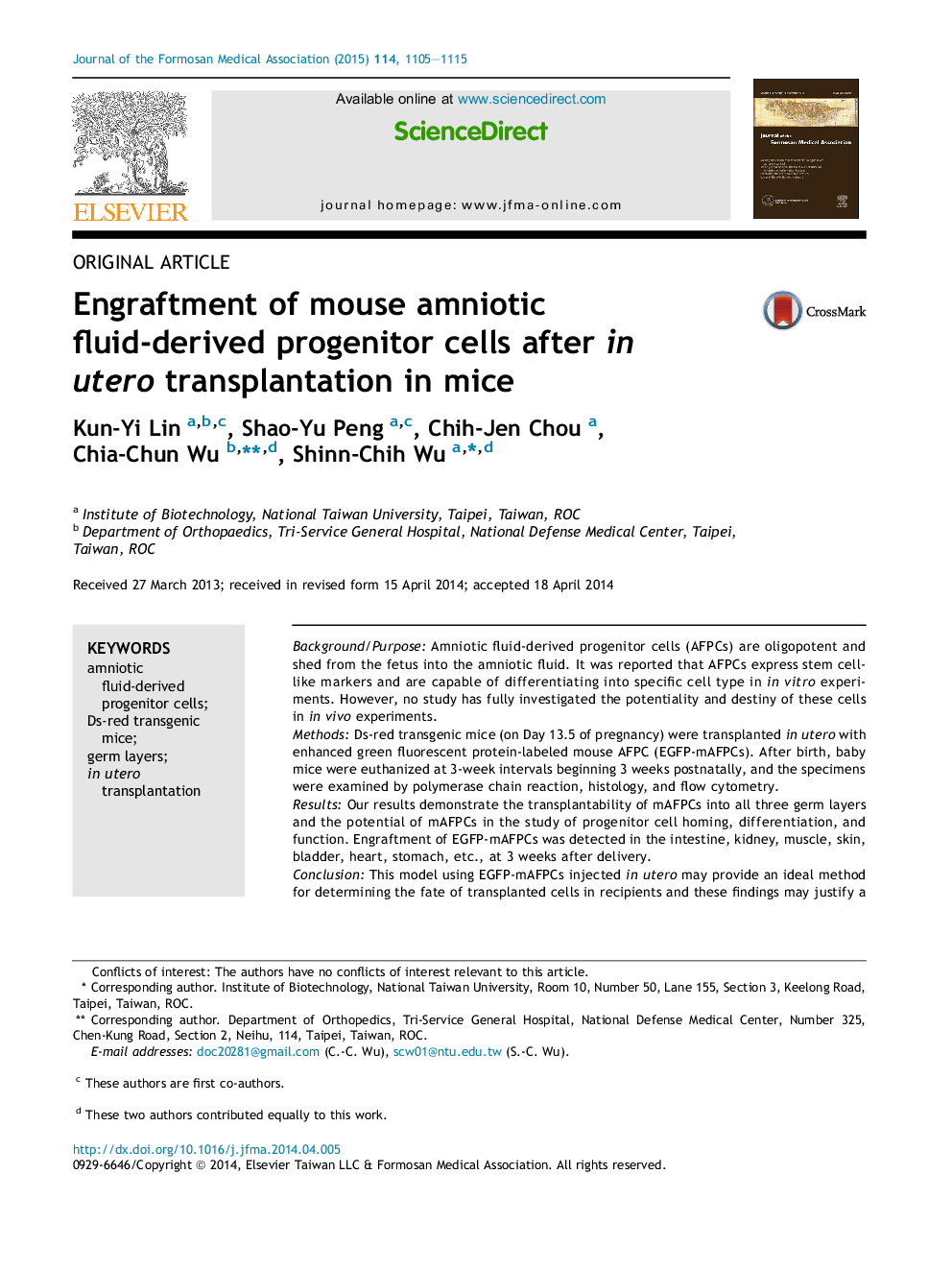| Article ID | Journal | Published Year | Pages | File Type |
|---|---|---|---|---|
| 3478301 | Journal of the Formosan Medical Association | 2015 | 11 Pages |
Background/PurposeAmniotic fluid-derived progenitor cells (AFPCs) are oligopotent and shed from the fetus into the amniotic fluid. It was reported that AFPCs express stem cell-like markers and are capable of differentiating into specific cell type in in vitro experiments. However, no study has fully investigated the potentiality and destiny of these cells in in vivo experiments.MethodsDs-red transgenic mice (on Day 13.5 of pregnancy) were transplanted in utero with enhanced green fluorescent protein-labeled mouse AFPC (EGFP-mAFPCs). After birth, baby mice were euthanized at 3-week intervals beginning 3 weeks postnatally, and the specimens were examined by polymerase chain reaction, histology, and flow cytometry.ResultsOur results demonstrate the transplantability of mAFPCs into all three germ layers and the potential of mAFPCs in the study of progenitor cell homing, differentiation, and function. Engraftment of EGFP-mAFPCs was detected in the intestine, kidney, muscle, skin, bladder, heart, stomach, etc., at 3 weeks after delivery.ConclusionThis model using EGFP-mAFPCs injected in utero may provide an ideal method for determining the fate of transplanted cells in recipients and these findings may justify a clinical trial of in utero transplantation during gestation for patients who have inherited genetic disorders.
